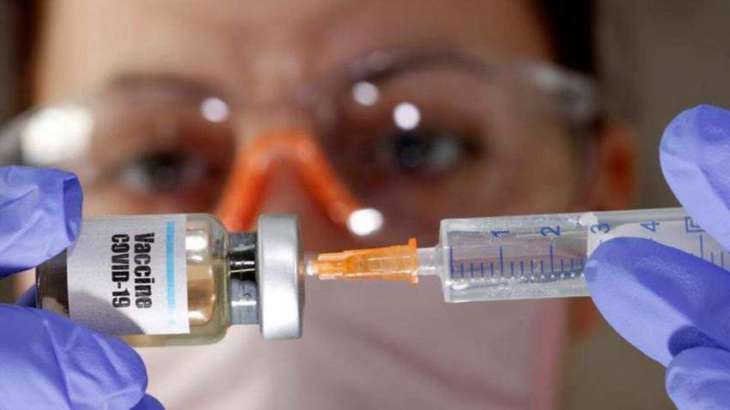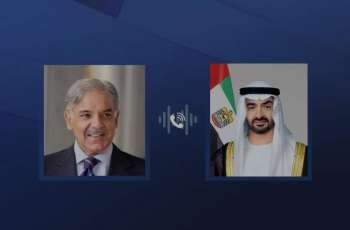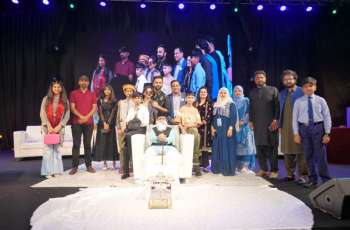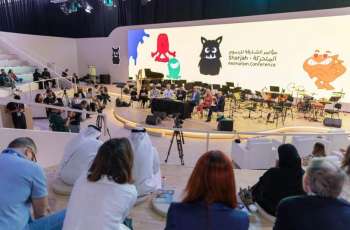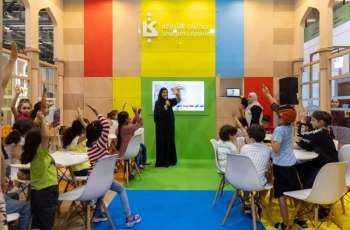In 2020, Russia went through a major political and constitutional shake-up that coincided with the worst global health crisis in recent history, which ultimately saw the country not only remain in relative control of the situation but also develop the world's first COVID-19 vaccine
MOSCOW (Pakistan Point News / Sputnik - 06th January, 2021) In 2020, Russia went through a major political and constitutional shake-up that coincided with the worst global health crisis in recent history, which ultimately saw the country not only remain in relative control of the situation but also develop the world's first COVID-19 vaccine.
In a packed hall in central Moscow on January 15, well before the coronavirus started visibly penetrating borders across the world, President Vladimir Putin delivered his annual address to parliament. He acknowledged Russians' desire for change and offered to turn a focus inwards, noting that national defensive capabilities had now been ensured for years to come.
Delivering his traditional speech at the very beginning of the year for the first time, he highlighted the urgency of the demographic, socioeconomic and technological challenges that the country had been facing. All this, the president stressed, requires a "new quality of public administration, the work of the government and all levels of governance, direct dialogue with the society."
He unveiled a package of social measures, announcing that maternity funds would now be paid not only to families with two children, but immediately after the birth of the first child. He also offered measures of support for low-income families with children and free hot meals for primary school students.
In the final part of his speech, Putin addressed a debate around the Russian constitution, which was born upon the simmering rubble of the Soviet Union in 1993. He maintained that there was no need to adopt a new constitution altogether, but agreed that it was time to introduce certain changes, as the state of affairs in the country had since cardinally changed.
The Russian leader proposed a slew of concrete amendments, including those boosting precedence of the constitution on Russian soil, banning top officials from holding foreign citizenship or a residence permit in other countries, toughening requirements for those running for the presidency, giving the lower house a greater role in endorsing a presidential nominee for prime minister, and enshrining an advisory body to the president, the State Council, in the main law.
He also stressed that Russia must remain a strong presidential republic, with the head of state retaining the right to determine the government's tasks and priorities and keeping direct command over the armed forces and the law enforcement system.
According to Putin, the proposed amendments did not concern the foundations of the constitution and, hence, could be approved by parliament. The president, however, insisted that they were important enough to be put to a nationwide vote.
Putin's message set in motion a chain of events. Within hours, then-Prime Minister Dmitry Medvedev, who had been in office since 2012, announced that the entire government was stepping down.
The president accepted the resignation and appointed Medvedev to the newly-created post of the deputy chairman of the Russian Security Council.
The same day, Putin nominated Mikhail Mishustin, who has a reputation of being a technocrat credited with modernizing the Federal Tax Service, as the new prime minister.
By the end of the marathon day, the president issued a decree to form a working group of legal experts, senior lawmakers and prominent public figures to draft constitutional changes.
Mishustin's candidacy was approved by the parliament the next day. In a government overhaul, the key ministers under direct constitutional control of the president, such as those in charge of defense, emergencies, foreign and interior affairs, as well as some other members of the Medvedev cabinet, retained their posts.
ESSENSE OF POLITICAL AMENDMENTS
As soon as January 16, Putin held the first meeting with the working group, kick-starting the discussion on amendments. By March, 206 changes were on the table.
Of them, the key one was proposed by Valentina Tereshkova, the first woman in space and a State Duma lawmaker. The provision allows the incumbent president, who was in his fourth term overall and the second consecutive one, to run for office again, resetting his count of terms to zero.
When it was back at the stage of discussion, Putin agreed with the clause should Russians and the Constitutional Court support it, and they ultimately did.
"You know, I will say absolutely frankly now: otherwise in two years, instead of working normally and intensely, all eyes will be on the search for potential successors, I know this from my own experience," Putin later said, adding that "one must work instead of seeking successors."
He, however, opposed scrapping presidential term limits altogether, saying that it would stand in the way of the country's "dynamic development" in the future.
Therefore, the final amendments retained a constitutional limit of two six-year terms for the President of the Russian Federation, while removing the word "consecutive." The special provision reset the count on Putin's term limits, thus allowing him to run again in 2024 should he choose to. Speaking at his traditional end-of-year press conference in December, the Russian leader said that he had not decided yet whether he would bid for a fifth reelection.
The proposed changes also prohibit top Russian political figures from having foreign citizenship or residence permits in other countries, and bar any individual from running for president if they have resided in Russia for less than 25 years (opposed to 10 years previously), have ever held any dual or foreign citizenship or have assets in banks overseas.
Other key public administration amendments boost the role of the lower house in endorsing nominees for prime minister and cabinet members. The provision does not apply to select portfolios, including the ministers of defense, foreign affairs, justice, interior and emergencies they are appointed by the president upon consultations with the upper house, the Federation Council.
The president also gets the right to appoint up to 30 nominees to sit in the 170-strong upper house, up to seven of whom can serve as lifetime senators, whereas previously the presidential appointments in the senate accounted for 17, or 10 percent of all seats.
The new constitution also grants the president lifetime immunity against prosecution, which can only be withdrawn by the upper house, provided that a slew of other conditions are met. Ex-presidents will also be able to serve as lifetime senators.
Another amendment enshrines the State Council, which has served as an advisory body to the president since 2000, in the constitution. It will help the head of state in coordinating the three branches of power and determining domestic and foreign policies.
Another bunch of amendments, submitted by President Putin in the final days of discussion, highlighted Russia's conservative values and commitment to defend historical truth.
As a result, for the first time ever, the Russian constitution mentions the word "God." A new article says that "the Russian Federation, united by a thousand-year history, preserving the memory of ancestors who passed to us ideals and faith in God, as well as the continuity in the development of the Russian state, recognizes the historically established state unity."
In the same article, Russia pledges to safeguard "historical truth" and honor the efforts of the defenders of the motherland. It comes on the 75th anniversary of victory in WWII as some countries seek to revise history and downplay the Soviet Union's role in defeating Nazism, which cost an enormous sacrifice.
Russia is further codified as the Soviet Union's successor state, including with regard to rights and international obligations. The article also designates Russian as the "language of the state-forming people."
In addition, Putin's final amendments define marriage as the union of a man and a woman and include the obligation to take care of culture as the unique heritage of Russia's multi-ethnic nation.
A special amendment, proposed by prominent Russian actor Vladimir Mashkov, protects Russia's sovereignty and territorial integrity, prohibiting any attempts or calls to alienate part of its territory.
Though Article 7 of the original 1993 constitution declares that Russia is a "social state," many argued that the main law had, until now, done little to fill that notion with real meaning.
Therefore, the social amendments that were proposed by Putin during his January address became central for many people. In line with them, the state guarantees that the minimum wage in Russia must not be below the subsistence minimum of economically active people. The revised constitution also pledges an annual indexation of pensions and other social benefits.
Another Putin-authored amendment sets children as a priority of Russia's domestic policy, with the constitution mandating the state to ensure a comprehensive spiritual, moral, intellectual and physical development of children and the cultivation of patriotism and civic consciousness in them.
By mid-March, the proposed changes went through both houses of the legislature, regional parliaments, as well as the Constitutional Court.
Initially scheduled for April 22, the nationwide vote, in which Russians were asked to say either "yes" or "no" to the whole package of changes, was delayed over the coronavirus until the summer.
Throughout this period, which coincided with the peak of the first wave of the pandemic, Putin on several occasions addressed the nation. Particularly, he unveiled a complex of measures to mitigate the economic ramifications of the coronavirus for people and businesses. Among them were aid for companies that had kept workers in their original jobs despite 1.5 months of paid leave declared in Russia due to the epidemic, as well as additional payments for families with children and the full reimbursement of income taxes that self-employed people paid for 2019.
Putin also proposed raising the income tax on yearly incomes exceeding 5 million rubles from the current 13 percent to 15 percent starting 2021. These additional budget revenues will be spent on the treatment of children with rare diseases.
He further suggested a 13 percent tax on individuals' income from deposits and shares if an individual owns more than 1 million rubles in such assets.
As the coronavirus started slowing down in the summer, the vote on the constitution was finally set for July 1. Russians, however, could cast ballots starting on June 25 to facilitate social distancing during the pandemic. At polling sites, everyone was required to wear a face mask and gloves. Moscow and the Nizhny Novgorod Region became two pilot regions, whose residents were able to vote online.
The vote was preceded by the WWII parade, which was pushed back due to the pandemic from May 9 to June 24, the day that the legendary 1945 Victory Parade was held.
In the almost week-long nationwide vote, 77.92 percent backed the amendments, while 21.27 percent rejected them. The voter turnout totaled nearly 68 percent.
The changes to the constitution took effect on July 4, marking a major reform of Russia's main law.
On August 11, Russia grabbed the headlines by registering the world's first COVID-19 vaccine. Soon, the Russian Direct Investment Fund announced that it had received requests for 1.2 billion vaccine doses from across the world.
This came as a bombshell for Western media, which labeled the Russian vaccine "unsafe," given that it was yet to start phase 3 trials. Days later, the post-registration trials began in Russia and Belarus. The United Arab Emirates, Venezuela, India and other countries have also struck deals to conduct Russian vaccine trials on their soil.
The analysis has since shown over 90 percent efficacy of Sputnik V.
In early December, Putin ordered a large-scale coronavirus vaccination campaign in Russia. Medical personnel, social service workers and teachers are the first in line to get shots.
The announcement came hours after the United Kingdom became the first Western country to approve a coronavirus vaccine, granting its first emergency use authorization to the Pfizer/BioNTech vaccine instead of the homegrown Oxford/AstraZeneca candidate.
On December 11, UK-Swedish pharmaceutical giant AstraZeneca accepted a cooperation offer from the Sputnik V vaccine developer, the Moscow-based Gamaleya Research Institute, to study COVID-19 vaccine combinations.
According to the Russian Direct Investment Fund, these trials will help the Anglo-Swedish multinational conglomerate study whether the efficacy of their vaccine candidate, which averaged 70 percent in November, could be boosted if combined with a component of Sputnik V.
Meanwhile, phase 3 trials are also underway for the second Russian vaccine, EpiVacCorona. Developed by Siberia's state research center Vector, it received regulatory approval in October.
Seeing 2020 off, Russia pins many hopes on coronavirus vaccination. With the world's fourth-largest case tally, the country has so far remained in relative control of the situation. Looking back at the first COVID-19 wave, Putin noted that "Russia has demonstrated the ability to mobilize the necessary resources probably like no other state in the world." While admitting certain woes of the health care system, he said that "no one has managed to mobilize the required number of beds [for COVID-19 patients] as effectively and quickly" as Russia did.
In September 2021, Russia is scheduled to hold legislative elections, in which 450 seats will be up for grab in the lower house a body that gains wider responsibilities under the revised constitution.
The authorities have not ruled out that the election will run for several days, as was the case with the all-Russian vote.
In late November, the European Parliament's foreign affairs committee hosted a debate with Russian non-systemic opposition to get briefed "on the political and socio-economic situation in Russia in view of next year's parliamentary elections."
During the online event, opposition activist Alexey Navalny, who accuses the Russian leadership of being behind his alleged poisoning with the Novichok military-grade nerve agent in Siberia this past August, asked the European legislature to reject the 2021 election results should certain candidates be barred from running.
